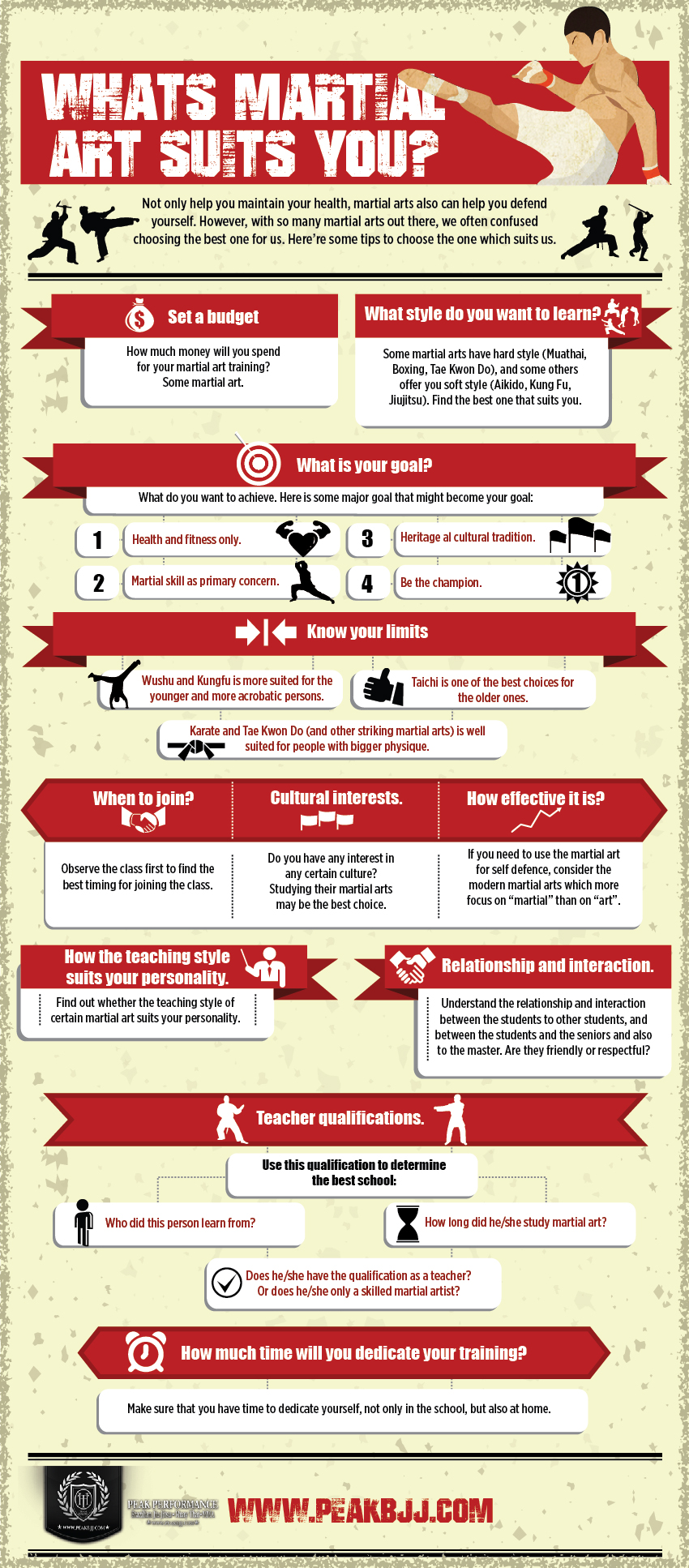Come Check Out The Exciting Globe Of Martial Arts, Where Ancient Customs Satisfy Modern Effectiveness - A Journey Right Into Background And Philosophy Awaits.
Come Check Out The Exciting Globe Of Martial Arts, Where Ancient Customs Satisfy Modern Effectiveness - A Journey Right Into Background And Philosophy Awaits.
Blog Article
Composed By-Gentry Stokes
Enter the old globe where martial arts were born out of necessity in diverse regions. Cultures crafted one-of-a-kind battling designs linked with historic contexts. Strategies progressed over centuries via committed method and social exchanges. Today, modern martial arts blend standard aspects for optimal performance. Philosophically, martial arts emphasize technique, self-improvement, and harmony. Regard, humbleness, and equilibrium are fundamental principles directing experts in the direction of growth and resilience. Explore martial arts ceo of this abundant history and philosophy to discover the profound influences forming this enduring self-control.
Origins of Martial Arts
Fighting style originated in different areas worldwide, advancing as useful fight systems to prevent risks. These old combating designs were established out of necessity, with each culture crafting methods suited to their distinct settings and obstacles. From the grappling arts of Jujutsu in Japan to the striking techniques of Kung Fu in China, martial arts were deeply intertwined with the historic, social, and cultural material of their corresponding cultures.
In Japan, the samurai class polished martial arts like Kenjutsu, the art of the sword, which later evolved right into the extra popularized form of Kendo. At the same time, in Brazil, Capoeira emerged as a mix of dancing and combat, created by enslaved Africans as a means to withstand injustice. Each fighting style brings with it an abundant background and ideology, reflecting the values and beliefs of the people that practiced them.
As you delve into the origins of martial arts, you discover a tapestry of human resourcefulness, durability, and the unrelenting spirit of warriors throughout time.
Evolution of Techniques
Via centuries of technique and improvement, combat methods within numerous martial arts have actually undergone an extensive advancement. From https://martialartshistoryforkids76532.blog4youth.com/31717324/broadening-horizons-beyond-the-dojo-various-fighting-styles-kinds-for-enhancing-fitness-and-overall-health like Kung Fu and Martial arts to more modern techniques such as Brazilian Jiu-Jitsu and Krav Maga, the advancement of methods has actually been driven by a mix of cultural influences, practical applications, and technical innovations.
One substantial aspect of this evolution is the cross-pollination of techniques between different martial arts. For instance, strategies from traditional Japanese Jiu-Jitsu were included into the development of Judo by Jigoro Kano in the late 19th century. This blending of styles has actually caused the growth of crossbreed martial arts like Mixed Martial Arts (MIXED MARTIAL ARTS), which integrate aspects of striking, grappling, and entry strategies.
Moreover, the development of methods has actually been formed by the raising emphasis on performance and performance in fight. Experts have actually constantly sought to refine their methods through extensive training, experimentation, and competition, resulting in the advancement of highly specialized and reliable battling designs. Generally, the evolution of methods in martial arts mirrors the dynamic nature of combat and the ongoing mission for renovation and innovation.
Philosophical Foundations
Checking out the underlying philosophical concepts of martial arts provides insight right into their core worths and leading ideas. At the heart of several martial arts self-controls is the idea of discipline itself. By training your body and mind to function as one cohesive unit, you cultivate self-control that prolongs beyond the dojo or health club into everyday life. This self-control includes respect, humbleness, and self-discipline, forming not simply your physical capacities but also your character.
One more essential philosophical structure in martial arts is the concept of continuous self-improvement. The journey of understanding a fighting style is never-ending, with practitioners regularly striving to better themselves, both literally and emotionally. This focus on growth cultivates resilience, determination, and a development mindset that can be applied to all aspects of life.
Additionally, martial arts emphasize the value of consistency and balance. Methods are developed to utilize an opponent's energy against them, highlighting the principle of yielding and rerouting pressure rather than fulfilling it head-on. This viewpoint extends to social connections, promoting calm resolutions and mutual understanding. By welcoming these philosophical structures, martial musicians not just enhance their fight skills however additionally cultivate a lifestyle fixated personal growth, regard, and harmony.
Conclusion
To conclude, the history and viewpoint of martial arts offer an abundant tapestry of tradition, discipline, and self-improvement.
Consider instance the story of Bruce Lee, that changed martial arts by blending different styles and approaches to create his own unique type of Jeet Kune Do.
With devotion and advancement, martial musicians remain to push limits and influence others to reach their full potential both in combat and in life.
